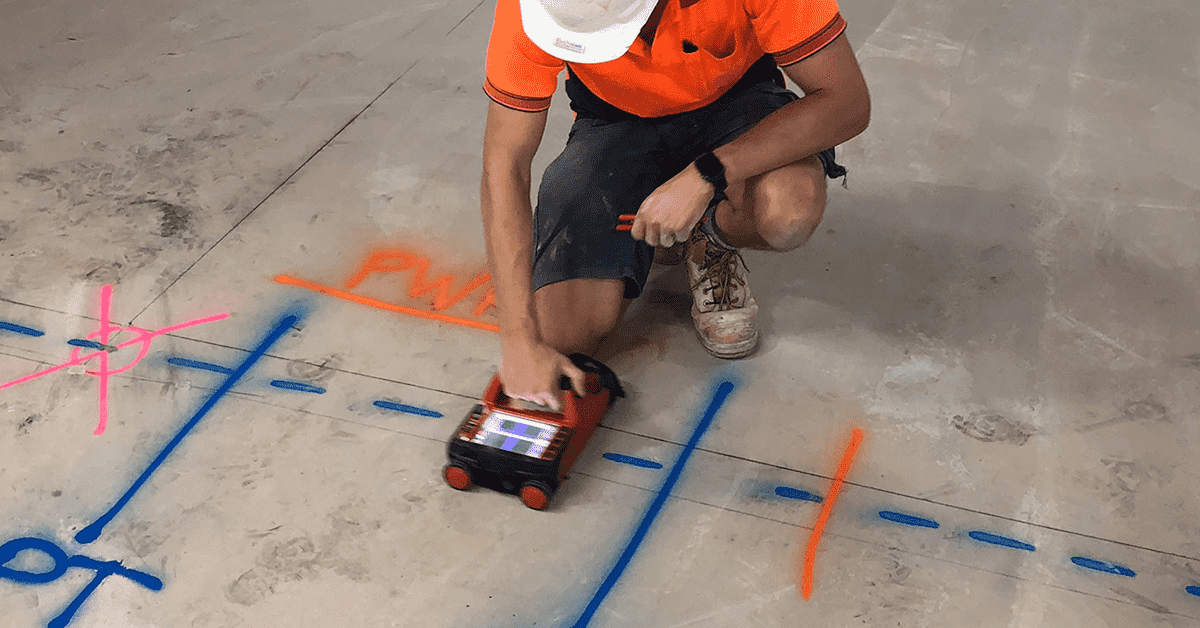Enhancing Task Preparation and Implementation Through Advanced Concrete Scanning Strategies
In the world of job preparation and implementation, precision and foresight are essential components that can make the distinction between success and obstacles. Advanced concrete scanning methods have actually become an advanced device readied to raise the standards of project monitoring within the building market. By taking advantage of sophisticated technology, these techniques provide a glimpse into the structural stability of a building even before the initial block is laid. The ramifications of such developments are profound, guaranteeing a paradigm change in exactly how jobs are approached and delivered.
Benefits of Advanced Concrete Scanning Techniques

Improved Accuracy in Project Analyses
Enhancing project assessments via innovative concrete scanning methods considerably increases the precision and reliability of building analyses. By employing sophisticated scanning modern technologies such as ground-penetrating radar (GPR) and 3D imaging, task teams can currently obtain comprehensive understandings right into the condition of concrete frameworks, identifying prospective imperfections or weak points that might not be visible to the nude eye. This boosted degree of accuracy in job analyses enables building and construction professionals to make even more enlightened decisions relating to repair service and maintenance techniques, causing enhanced total project outcomes.
Additionally, the boosted accuracy in project assessments achieved through advanced concrete scanning strategies assists in lessening the threat of unexpected issues during the building phase. By proactively discovering concealed anomalies within concrete structures, such as rebar rust or spaces, job teams can attend to these problems at an early stage, staying clear of expensive hold-ups and rework later on in the job lifecycle. Eventually, the enhanced precision in task assessments helped with by sophisticated concrete scanning methods adds to greater performance, cost-effectiveness, and top quality in building jobs.
Very Early Identification of Architectural Difficulties
Early detection of structural obstacles plays a vital duty in making certain the honesty and safety of concrete structures throughout the building and construction process. Recognizing potential issues at a very early phase permits for prompt treatment, stopping pricey rework, timetable delays, and safety dangers. Advanced concrete scanning strategies, such as ground-penetrating radar (GPR) and 3D imaging, enable task groups to uncover hidden flaws, spaces, reinforcement layout discrepancies, and various other abnormalities that can compromise the structure's security.
By carrying out these strategies throughout the planning and execution stages, building specialists can proactively address structural difficulties prior to they intensify into major issues. As an example, discovering inadequate concrete cover over reinforcement bars beforehand can stop corrosion and architectural weakening in the future - RainierGPR Service Areas. Moreover, determining variations in concrete density or thickness can aid optimize material usage and make certain uniform toughness buildings throughout the framework

Eventually, early recognition of structural obstacles via sophisticated concrete scanning not just boosts the overall quality and durability of the construction yet additionally contributes to a much safer built setting for passengers and individuals.
Boosted Precaution in Building And Construction
The application of durable security protocols is necessary in the construction market to alleviate threats and safeguard the well-being of stakeholders and employees. To boost go to website safety and security actions, construction firms are increasingly taking on technical developments such as wearable gadgets that check workers' crucial indications and find possible health concerns in real-time. By prioritizing safety with the consolidation of sophisticated technologies and detailed training programs, building tasks can substantially decrease accidents and develop a protected working atmosphere for all involved.
Streamlining Project Monitoring Processes
To enhance operational effectiveness and make sure task success in the building market, an emphasis on improving job monitoring procedures is crucial. By applying reliable project monitoring procedures, construction jobs can lessen hold-ups, reduce prices, and improve total productivity.

Verdict
To conclude, the utilization of innovative concrete scanning methods offers many advantages for job preparation and execution. These techniques offer improved precision in job evaluations, very early identification of architectural difficulties, boosted security procedures in building and construction, and structured job management procedures. Including these approaches right into project process can eventually link lead to more effective and effective results in building jobs.
Inevitably, the boosted accuracy in job evaluations helped with by sophisticated site concrete scanning methods contributes to greater performance, cost-effectiveness, and top quality in building jobs. RainierGPR Service Areas.
To optimize functional effectiveness and make sure job success in the building and construction industry, a focus on streamlining project monitoring procedures is vital. By implementing efficient project management procedures, building tasks can decrease hold-ups, lower expenses, and boost total efficiency. By simplifying project monitoring processes with technology combination, clear communication, and data-driven approaches, building tasks can achieve better efficiency, cost-effectiveness, and effective outcomes.
These strategies offer enhanced accuracy in task analyses, early recognition of structural difficulties, boosted safety steps in building, and structured job management procedures.